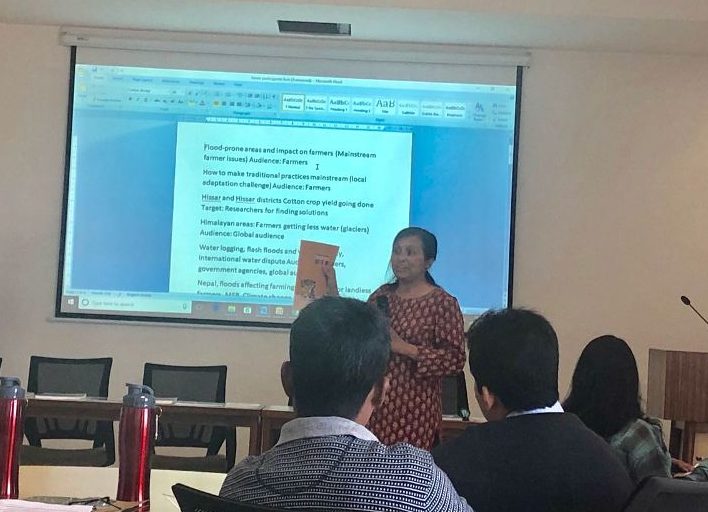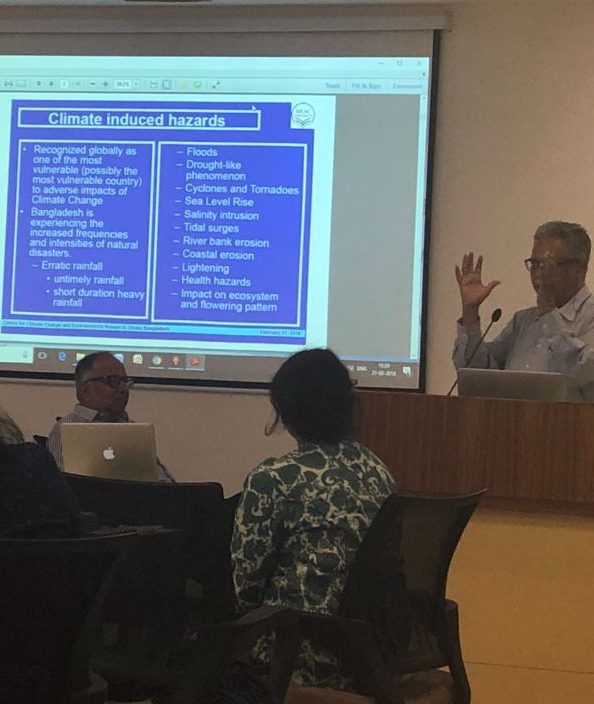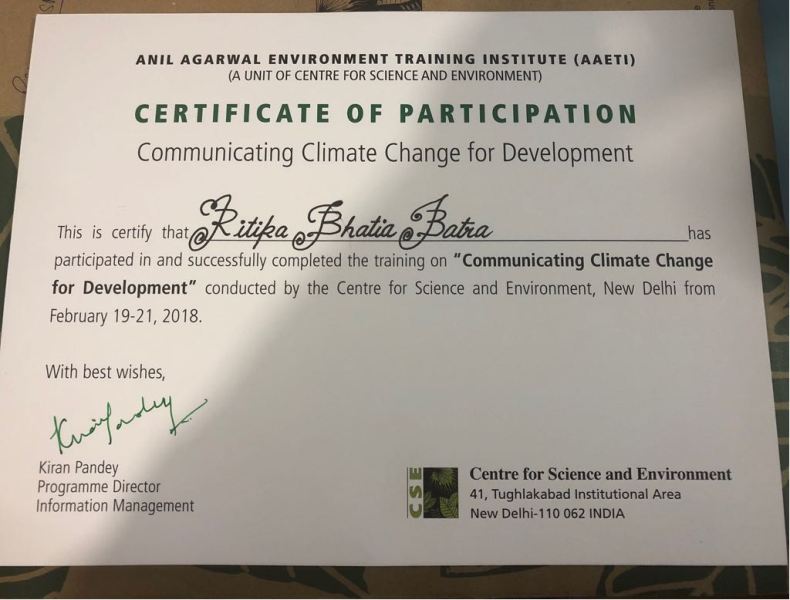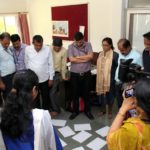Date: 19.02.18 to 22.02.18
Venue: Anil Aggarwal Environment Training Institute, Tijara, Rajasthan
Centre for Science and Environment (CSE) had organized residential training for NGOs and Round Table meeting on climate change and adaptation from February 18 to 22, 2017. This initiative brought together climate change specialists, grassroots workers, communicators, and adaptation scientists and planners to discuss ground-level scenarios and strategies, understand how new media and communication tools can sharpen these strategies, and find some long-lasting solutions.
Three day training organised by @cseindia
DAY ONE
The first day of training focused on building the understanding of the participants on the purpose and importance of effective communication. In order to explain the context the trainer gave example of CSE’s Down to Earth magazine which focuses on reaching out to the masses with its case stories related to climate change from different parts of the country. In this magazine the whole purpose is to bridge the local with the global such that even small changes can be acknowledged and by taking them to the global level they can inspire more changes. The various sessions also focused on the need of building the understanding of environment and the ways to conserve it in Indian context.


DAY TWO
The second day of the training began with Mr.Joydeep Gupta discussing about the various important source of communicating the case stories i.e. Magazines, Publications and social networking websites. He mentioned “Anything local is Global you just need to join the dots”. In the following sessions of the day the major emphasis were given on the best usage of available technology especially the social networking sites. There was special emphasis given to building of networks by using social media platforms because the final target of networking is to communicate the case story at a global level such that changes in the government policies can be brought in. The best and basic elements of story communication were specified as Pictures, Statistics, Stories and quotes.


DAY THREE
On the third day a round table meeting was organized with all the stakeholders comprising of representatives from various national and international ngo’s, government sector, academia and experts. In this meeting the major points that were highlighted were:-
– It was discussed whether a national mission mode or project mode through grass-root organizations involvement should be adopted to meet the need of the hour.
– This meeting directed towards the importance and requirement of evaluation & monitoring agenda in project mode for process acceleration.
– The various international ngo’s were from developing nations such as Nepal, Bangladesh and Kenya. Their presentations of their work were a perfect example of hard-work done towards combating the effects of climate change.


Ms.Ritika Bhatia (Project Coordinator, CSR) had this to say about the residential training
The most important take away from this training was how through small changes in our daily life we can curb the effects of climate change. The CSE training campus was the best example for it as they had made strict rule of “no plastic on the campus” and all the participants were encouraged not to use plastic water bottles. Also they had planted dustbins in their campus that promoted disposal of waste depending on its typei.e. Bio-degradable &non-biodegradable. Such training of trainers give great exposure to the ngo’s to meet likeminded organizations and experts. It also helps the trainers to test their own work and to re-look at it with new perspectives.




